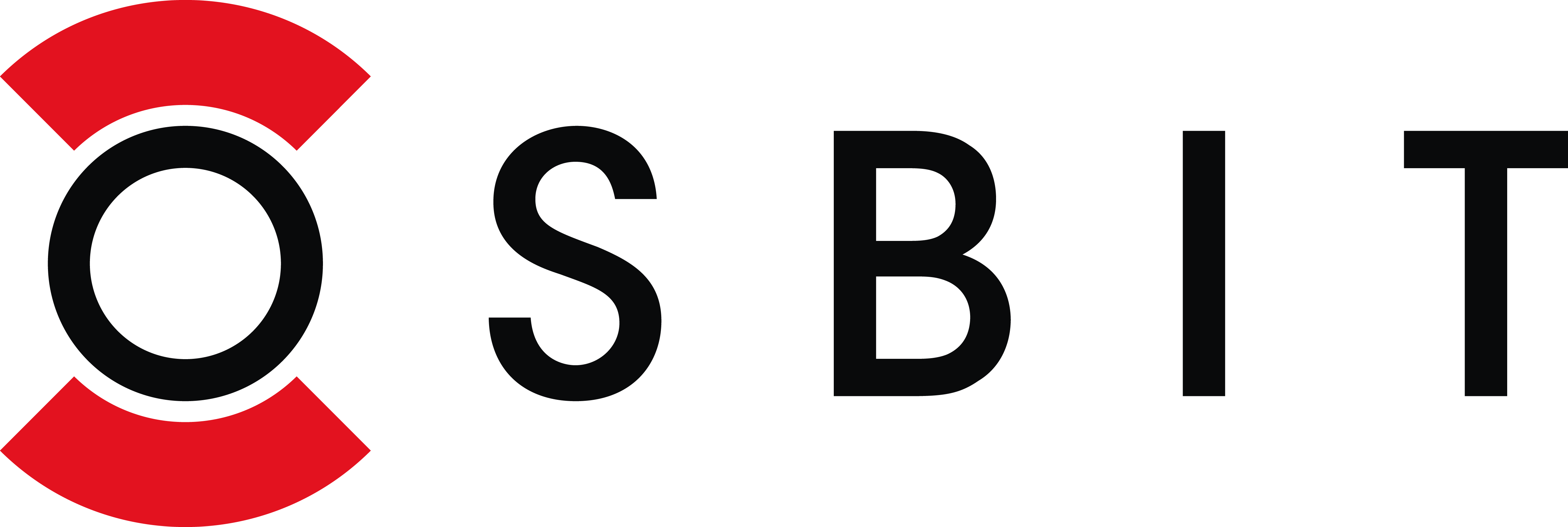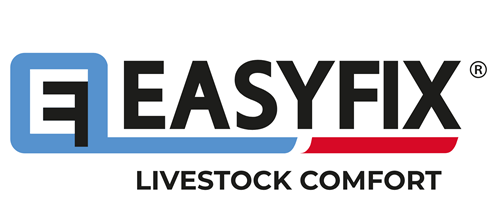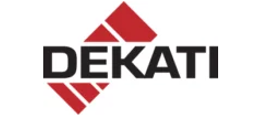
“Never stop improving”— How manufacturing at EASYFIX® keeps on getting smarter

Making Digital Transformation Easy, Logical and Timely
“We continuously develop and improve our products to make the operations of our farming customers more effective, and that depends on ensuring the comfort and the quality living conditions of their animals. The more accurately and cost-effectively we can achieve those goals, the better it is for everybody.
The process of digital transformation is ongoing for us, helping to drive and support our continuous business growth; a process that Symetri has been making easy, logical, and timely for us since 2010. They’ve embraced our workflows, our passion, and our commitment to modern manufacturing. In fact, they have made them all possible. That’s why we value the relationship we have with them”.
Meet Easyfix
Based in County Galway, Ireland, EASYFIX specialises in products aimed at providing animal comfort, a key factor in supporting healthy lifecycles and, as a result, higher levels of productivity.
The company has experienced significant growth since its inception in 1996, and is today regarded as the World’s Number 1 provider of Livestock Comfort, and a significant force in the Animal Welfare sector globally. EASYFIX now exports its products to over 60 markets worldwide, and has branches in Germany, the UK and the U.S., with a growing network of over 100 distributors across Europe, the Middle East, Africa, North America, and Australia.
The Starter Challenge: Finding a Technology Partner to help Drive Growth
An Inspiring Relationship Drives Innovation
EASFIX and Symetri started to work together in 2010. EASYFIX was looking for licence renewal on two Autodesk solutions at the core of its workflows; Inventor, for conceptual product design; and Showcase, primarily used for rendering and marketing collateral.
At this time, the company was a one-product specialist manufacturer of patented flooring in the form of cow mats. There was just one designer, Karl O’Mahony — an industrial engineer by profession — who joined EASYFIX in 2007 and is now the company’s Product Development Manager.
“We were not yet in the realms of digital transformation at that stage”, says Karl, “but we did need expert input in sorting our licencing, helping us to optimise the value we got from it, and we were hoping for guidance on improving our workflows.
The companies we saw were focused purely on upselling to us. Then we met Symetri, and it was obvious that clinching a sale was the last thing on their minds. They asked about our business, our goals, and our challenges. They genuinely wanted to understand if the choices we believed were right were, in fact, the right ones for us. I was impressed. Symetri has been alongside us ever since”.
As well as the licensing issue, EASFIX had a particular stumbling block in its design workflow arising from the heavy patterning intrinsic in mat design. The solutions offerings it had been evaluating all seemed to address one core part of the process but didn’t offer an end-to-end capability.
“Symetri were honest in telling us it was not a problem they were familiar with, but that they’d go away and find a workaround” says Karl. “They put time and effort into doing this, and they came up with a solution. For the next two years they wouldn’t let this one go, and carried on refining their approach; each time enabling us to make a big step forward. Their recommendations were not just confined to the technology domain either. They added a real holistic perspective by looking at the business side of things, acting in a consultancy role by always looking at how everything fitted within a bigger picture”.
This workflow project was illustrative of how the two companies worked together,
but things were about to shift up a gear:
requiring a rapid period of technology change at EASYFIX,
to support and further drive its growth in global markets, product offerings
and distributor network partnerships
The Long-term Trajectory:
Fresh Pastures | New ways of Seeing, Developing and Making
From 2015, EASYFIX’s growth swung dramatically upwards. In serving new territories with an expanded product range, through a significantly extended distributor network, it required technologies that could connect all three together.
The digital transformation journey became a priority in consolidating the company’s reputation as a leader in its field, globally: through an easier understanding of product features and benefits, making it essential to embrace data sharing, collaboration, and modern manufacturing processes, from concept to design through to manufacture.
- New markets: From its traditional market strengths covering the US, the UK and Eire Ireland, and Europe, EASYFIX expanded into Australia, China, the Middle East, and New Zealand. The need for seamless and secure data sharing intensified across all markets.
- New products: Through this period, the product range expanded to the broad offerings that comprise its portfolio today: rubber matting, cow cubicles, feeding solutions, pig toys, slurry management systems, Safety Products and equine products.
Whether in helping increase a farming organisation’s ROI, an equine customer’s safety measures, or ensuring conformity to the many regulations that all its customers have to follow, EASYFIX regards collaboration with its customers and distributors of prime importance in the product development process. - New routes to market: EASYFIX has devoted years of effort to building relationships with reputed in-country distributors, involving annual attendance at 90 international trade shows to build its brand awareness.
Bringing it all together | Working smarter
Doing more with less: The Shift to Additive Manufacturing
EASYFIX had traditionally depended on prototype development processes undertaken by eight different tool-making companies. This approach was expensive and time-consuming and also involved another risk; safeguarding the EASYFIX Intellectual Property (IP). There was a serious need to bring product development in-house.
Symetri worked with Karl to transfer prototype-making in-house using 3D printer technology to make a marked shift into the world of additive manufacturing. Taking data from the design model, 3D moulds can be printed directly. The printing can take place at the concept stage to validate the manufacturing process before a product goes to market.
Costs have tumbled, lead times are reduced, and EASYFIX can now more confidently focus on ‘doing more with less’; using less material, and selecting better materials. This latter consideration is important both in lightweighting the final products and, through material selection, being able to deploy sustainable, recycled rubber
This was a huge step for EASYFIX, but only one of many taken to align the company’s technology capabilities with the intensifying workloads occasioned by serving more customers in more countries, with new ones coming on stream at an up-tempo pace.
The Data Connection
In parallel with the move to additive manufacturing, Symetri continued to look closely at EASYFIX workflows and at ways in which the company could better use its data.
“Symetri knows all there is to know about our data. They know how it is generated and how it is linked. They also know how to help us get the best out of it, and that — among the whole range of proactive recommendations they’re always coming up with — is why we refer to Symetri as our trusted advisor”, says Karl.
Karl took the view that, from the EASYFIX perspective, there are two types of data: Raw, and ‘Cosmetic’. Raw data is the data contained within a 3D model, to be used in mould-making. EASYFIX still uses external mould-makers for Production moulds and the raw data is supplied to them (with rock-solid agreements in place to protect the patents). ‘Cosmetic’ data is to give customers and disruptors the ‘look’ and the ‘feel’ of the product. Symetri proposed Fusion Team platform for raw data purposes and Vault Pro’s collaboration tools for the cosmetic purpose.
Back to the original two core software solutions that triggered the EASYFIX/Symetri first encounter back in 2010, things have come a long way since then. Symetri had taken Karl in detail through the benefits to be gained by using the Autodesk Product Design and Manufacturing Collection (PDMC).
“With the PDMC on board, our workflows had changed drastically since the early days”, says Karl. “They had to. We could not have coped easily with our growth had we carried on with the old AutoCAD models we had been using. We were ready for the final leap into hyper-space — the move to the cloud. Symetri took care of every detail. Everything is now stored in the cloud”.
The Next Big Thing
When Karl joined EASYFIX in 2007, the company had one warehouse, not too much office space, and a 2-acre yard. The yard today, in Ballinasloe, covers 5 acres, the warehouse covers 4 acres and the offices are state-of-the-art equipped. There are now four on the design team.
“Our salespeople, and our distributors, love how we can now present our products through any connected device they happen to be working on. Using the collaboration tools within Vault Pro is intuitive and immediate. It makes sales easier.
It has addressed other issues too. We were encountering a high volume of Bill of Materials on one of our product lines. With the MRP software we were using, the BOM had to be manually set up each time. Now it simply gets exported from Vault, and then imported to the MRP system. It does not need to be re-created every time. This sort of integration now means that our CAD systems drives our sales systems. Everything is integrated. Everything is as our various stakeholder groups would want it. But we never stop improving”.
Symetri and Karl are looking at deploying a 3D product configurator, linked into CAD data, that will enable the real-time configuration of entire barns. EASFIX customers will be able to see the future. And, together, EASYFIX and Symetri will carry on making it all possible.
Related Cases


Dekati Relies on Sovelia PLM for a Seamless and Smoother Flow of Information from Design to Production
Meet Dekati Ltd They have been a world leader in designing and manufacturing innovative fine particle measurement solutions for 30 years. They provide measurement instruments and complete measurement solutions to various environments and sample co... Learn more



